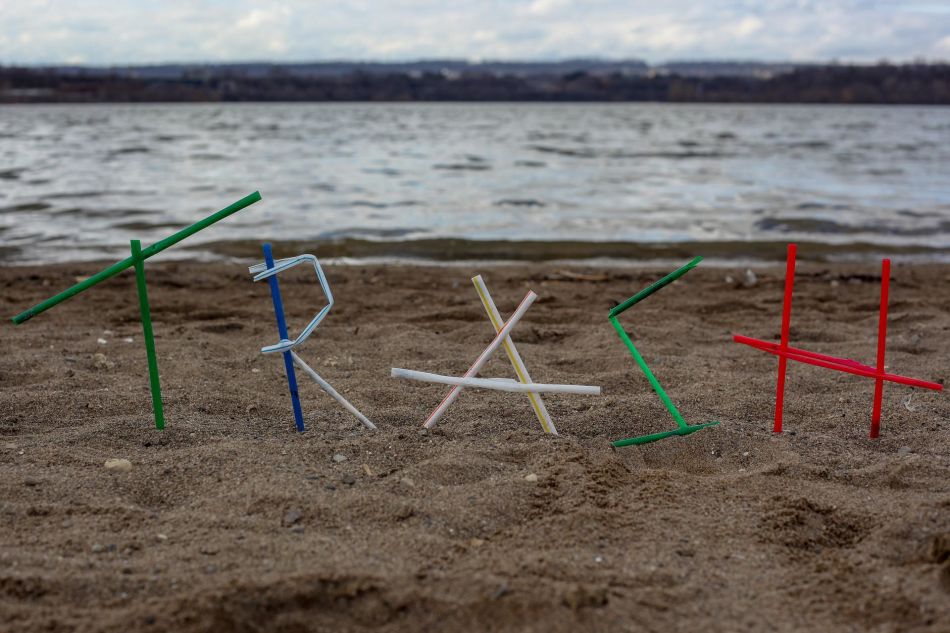No Straws: Why Seemingly Trivial Efforts Matter in Addressing Our Most Serious Problem
Gary Moore | Moore Lowdown

image by: Jasmin Sessler
Eliminating single-use plastic products has become a cause célèbre over the past few years, but some in the environmental community complain it's a distraction from the bigger issues. Here's why they're wrong
"Over 500,000,000 plastic straws are used each day in the United States," says the Plastic Pollution Coalition. "In only the past twenty years, people have come to expect plastic straws in every drink, in an example of extreme waste being generated for minimal convenience."
As USA Today documented last year, that number⎯obviously a gross estimate⎯has been floating around for most of the decade; and although it's an unverified, gross estimate, it has enough ring of truth to have been quote by the New York Times, National Geographic, and the U.S. National Park Service.
That's because the point is the general problem, not the details. If the oft-quoted statistic is five times higher than the actual number, Americans are still using 36,500,000,000 straws every year, which adds up to over 328 billion since 2011, when the stat first appeared. If we've been doing that for 30 years, that's roughly 10 trillion straws still in landfills or that have degrade into toxins (plastic is a petroleum product, remember) polluting the waters and seeping into soil. And this is to say nothing of all the single-use utensils, cups, lids, bottles, bags, and other containers that join them in our garbage dumps and waterways.
In other words, it's a big problem.
But for some in the environmental community, it's not big enough to merit all the attention, despite the fact that resulting government bans and corporate eliminations of such products are undoubtedly part of a trend resulting in a reduction in that huge number.
This view is articulated in a February 2019 paper published in Marine Policy. "Plastic has become a focus in the media and public domains partly through the draw of simple lifestyle changes, such as reusable water bottles, and partly through the potential to provide ‘quick fix’ technological solutions to plastic pollution, such as large scale marine clean-up operations and new ‘biodegradable’ plastic substitutes," write authors Richard Stafford and Peter J.S. Jones. "As such, ocean plastic can provide a convenient truth that distracts us from the need for more radical changes to our behavioural, political and economic systems, addressing which will help address larger marine environmental issues, as well as the cause of plastic pollution, i.e. overconsumption."
The hot statistic being circulated by many making this point (although Stafford and Jones decline to invoke it) comes from a March 2018 study published in Nature subsidiary Scientific Reports: 46 percent of all plastic in the ocean is discarded fishing gear (nets, lines, etc.). On the other hand, all those straws comprise less than 1 percent. Which means it's a bigger problem.
Fishing, though, is an industry whose raison d'être is completely dissimilar to that of disposable plastics. At bottom, fishing is about feeding people, whereas the vast majority of single-use plastics is about convenience. While bendable plastic straws provide legitimate aid to persons with certain disabilities and plastic water bottles might be lifesavers in disaster zones, the rest of us can easily make do with paper or metal straws and canteens.
But comparing the problems misses the central point. Every reduction in bad environmental practice is a step in the right direction. Even if you're not a vegetarian, it's easy to see that we should eat less meat and that fishing-industry practices should be reformed. But this has nothing to do with whether we should stop using single-use plastics simply for the sake of convenience or laziness or corporate profit.
The point of individuals reforming our little wasteful practices is heightened awareness. Ceasing to use plastic straws is a small, simple change, and doing so is a window into how easy it is to live by a higher environmental standard. It's a jumping-off point for changing other behaviors and considering related issues. And it's just that sort of consciousness-raising that will beget bigger changes. The biggest governments and corporations, after all, are made of individual people⎯and the more those individuals choose to order their lives around environmentally sustainable practices, the more they'll push for corporate or governmental policies and practices that do the same.
That's exactly why organizations like the Plastic Pollution Coalition don't think the "no straws" call is a distraction at all. "In the long run," they write, "this collective engagement around the gateway issue of plastic straws will meaningfully shift the way individuals and businesses think about plastic pollution⎯and about our society’s disposable culture on a larger scale."

Introducing Stitches!
Your Path to Meaningful Connections in the World of Health and Medicine
Connect, Collaborate, and Engage!
Coming Soon - Stitches, the innovative chat app from the creators of HWN. Join meaningful conversations on health and medical topics. Share text, images, and videos seamlessly. Connect directly within HWN's topic pages and articles.
















